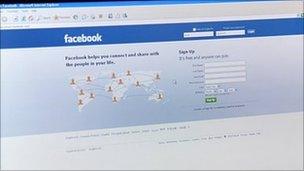Facebook juror: Your views
- Published

A juror, who contacted a defendant via Facebook, has admitted contempt of court in the first case of its kind in the UK involving the internet.
London's High Court heard that Joanne Fraill, 40, contacted Jamie Sewart, 34, who had already been acquitted in a drugs trial costing £6m in Manchester, but other defendants were still on trial and the case collapsed.
Two former jurors have contacted the BBC with their views on this subject.
Euan Mercer, Bristol
"I served on a jury before social networking was in general use.
I am astonished that the juror in question thought that contacting the defendant was a reasonable act.
The jury has the right to request clarification from the judge for any legal technicality, they can ask their own questions (via the clerk if I remember correctly) so there should be no need for them to do extra research. I understood this when I was a juror and I took it very seriously. I didn't even read the local papers during the course of the trial.
I can understand the temptation to use the internet now that information is so much more readily available. But the whole point of a jury is that they shouldn't know anything apart from the facts that are presented in the courtroom.
Social networking seems to act as some sort of proxy for real relationships and some people seem to consider Facebook, Twitter etc as a kind of "safe space" where normal social rules don't exist.
Realistically I think juries will now be using social media all the time. It is harder and harder to police. It's only because this is such an extreme case that it has come to notice.
I don't think there is much more any court or judge can do other than stress how important it is to keep jury deliberations within the jury room and ONLY to use the evidence presented to you. If a juror is determined to behave in such a foolish fashion as this person the only sanction is to punish them as fairly as possible."
Simon Page, Norfolk
As a former jury member, I can imagine that it is very difficult for people not to research on the internet - or even just to avoid media in today's society, particularly on a high-profile case.
Any intelligent, inquisitive person will have questions in their mind that can't be answered in court. It must be very difficult not to do extra research.
However, I am very surprised that this juror went so far. She would have been expressly warned by the judge not to contact people. It is rather naïve for someone to do that and not be aware of the ramifications.
I don't think the courts can do anything about social media research. The only thing that courts could do would be to segregate the jury from the civilised world. They can't put people up for weeks and weeks in a hotel - there simply aren't the funds for it.
- Published14 June 2011